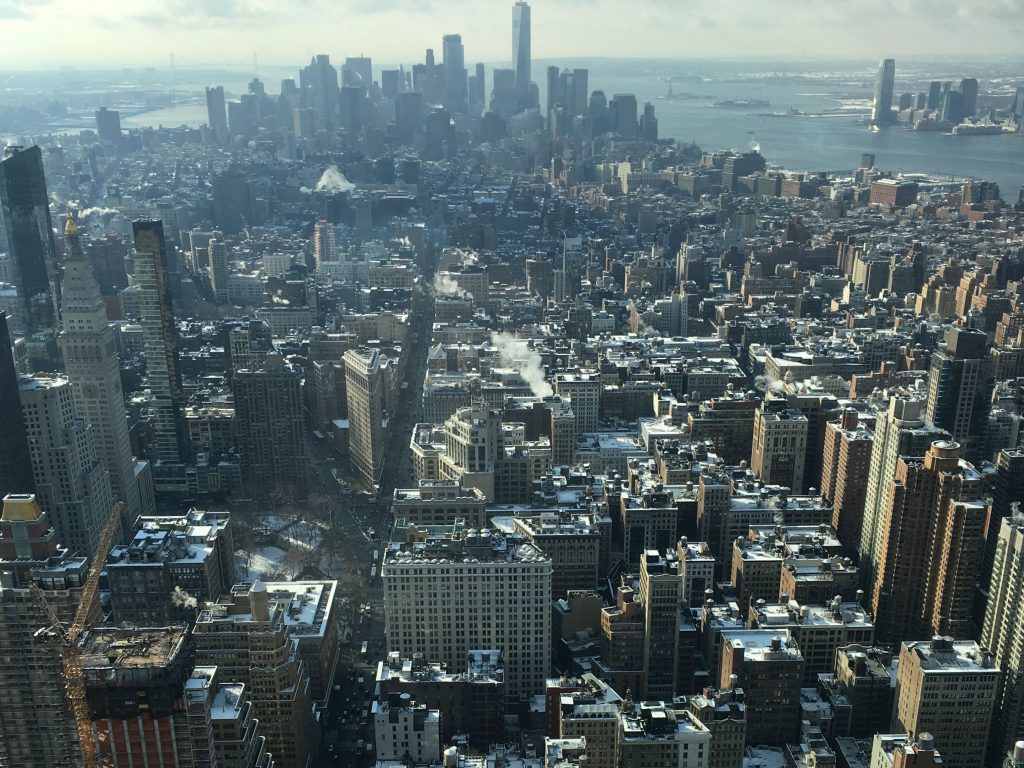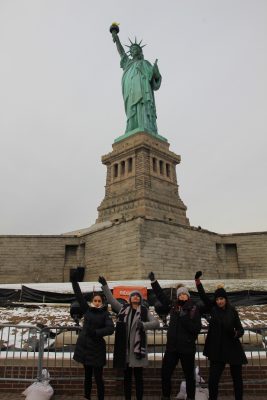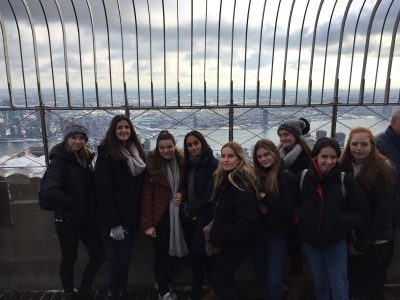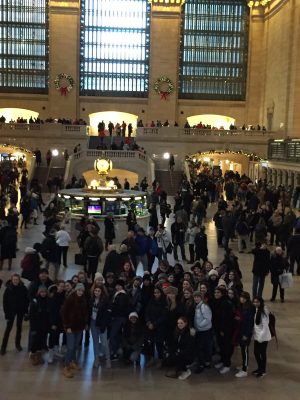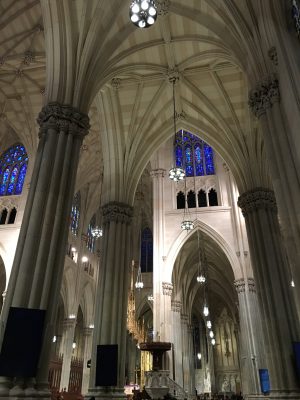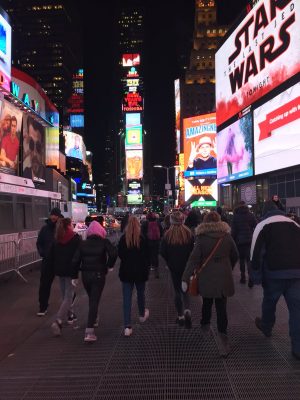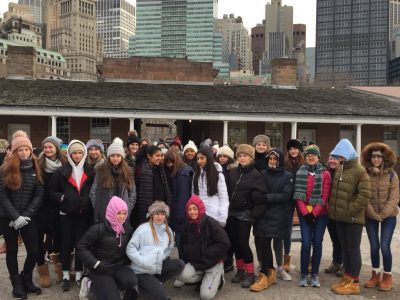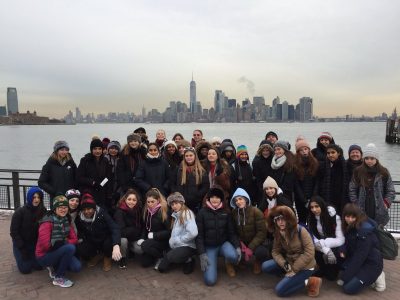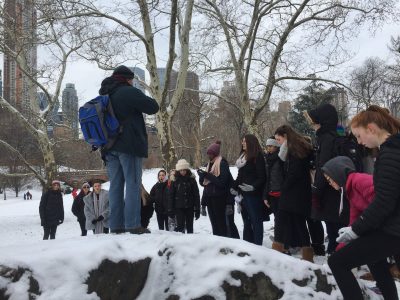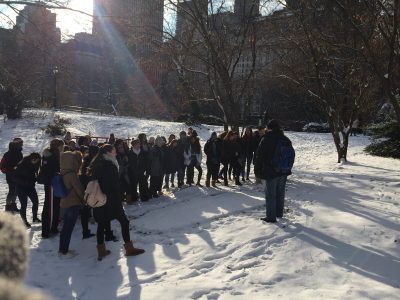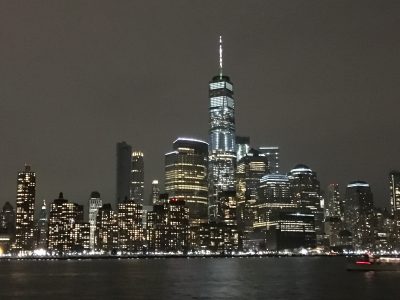New York, New York!
There was a valuable supplement to the Geography curriculum at the end of the Michaelmas Term when senior girls travelled to New York on a fieldvisit – an incredible opportunity to examine and investigate New York. Mr Chappory, Head of Geography, here reports on this exciting visit:
‘From 13th to 18th December 2017, 38 students from Lower V, Upper V and Upper VI attended our Geography field trip to New York. This educational visit was a great balance between the fun and excitement that New York City at Christmas time brings and a lot of learning about its development as a Megacity. Our itinerary included visits to the Empire State Building, Rockefeller Plaza, Times Square, Statue of Liberty, Ellis Island Museum of Migration, Central Park, Grand Central Station, Fifth Avenue, the Financial District, the 9/11 Memorial Museum, St Patrick’s Cathedral, where we attended Mass, Macy’s (Herald Square) and many other sites.
Atop the Empire State Building
In addition, we took a boat trip down the Hudson River and up the East River under New York’s famous Brooklyn, Manhattan and Williamsburg Bridges. We also visited one of New York’s flagship sustainable buildings- The Solaire building. Some students even visited the National Museum of Mathematics. We even had time to take in a Broadway show.
Grand Central Station
The hotel was incredibly well located by the Flatiron building at the corner of Fifth Avenue and West 25th Street, making all our excursions accessible.
Rockefeller Centre
St Patrick’s Cathedral
Every opportunity was taken to explore the following five geographical concepts which underpin the GCSE and A Level courses followed by those students who participated in this educational visit.
- Most of the world’s great cities have access to the sea, but it takes a natural, safe harbour for a coastal city to become a megacity.
- If that natural harbour faces the migrant’s “place of origin”, that city becomes a “host” for international migration. Migration makes megacities.
- Physical Geography can limit space. That is why so many cities build upwards. The right kind of bedrock is necessary for these kind of buildings. Without the necessary foundations, you can’t build a megacity.
- All urban areas try to make themselves more economically, socially and environmentally sustainable, but is it possible to achieve this sustainability in a megacity?
- Large urban areas only survive because of constant redevelopment, regeneration and rebranding. However, sometimes the need for redevelopment is thrust upon a city by a specific event. Having many functions and the ability to adapt makes a success of a megacity.
Times Square
This visit was made possible by the incredible hard work of Ms Keep who organised everything beforehand and liaised with airlines, the hotel and made sure that Equity School Travel booked everything as we wanted it – to make the Geography Department’s vision of this trip a reality. This was very much the “bespoke” trip we always wanted it to be.
The Geography Department is very grateful to the accompanying staff who were committed to making sure that all the students’ needs were met at all times. I lost count of how many head counts must have been done – imagine trying to walk 38 students through Times Square on a Saturday Evening so close to Christmas in the snow? This great team comprised of Ms Hales, Mrs Gosling, Mrs Macallister, Mrs Sumpter and Ms Sumpter
National Museum of Mathematics
A lesson in Central Park
There was also a lot of time for fun. New York has a special quality about it at Christmas time. The students and staff had a great time. Also, I believe there was a little bit of shopping going on when I wasn’t looking!’

